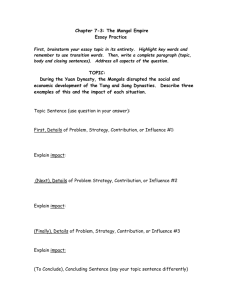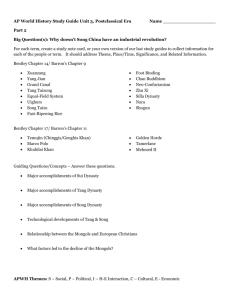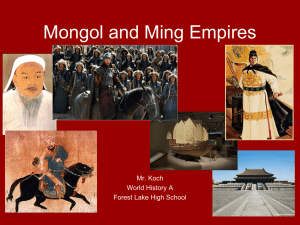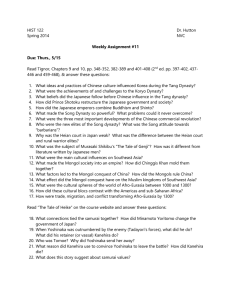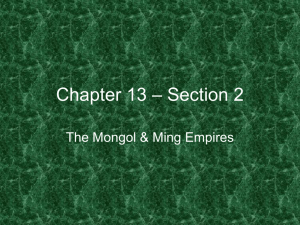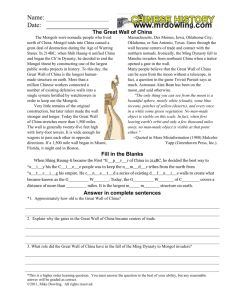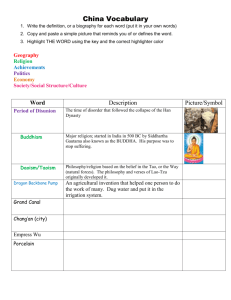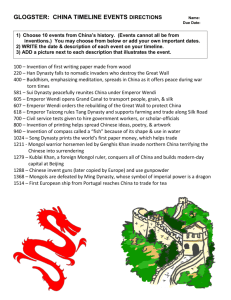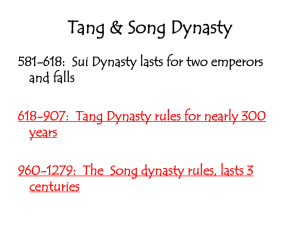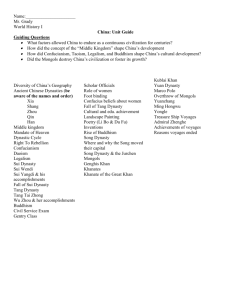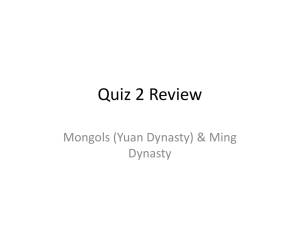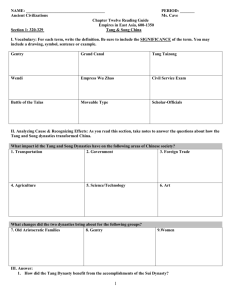13-1 Notes - Little Silver Public Schools
advertisement
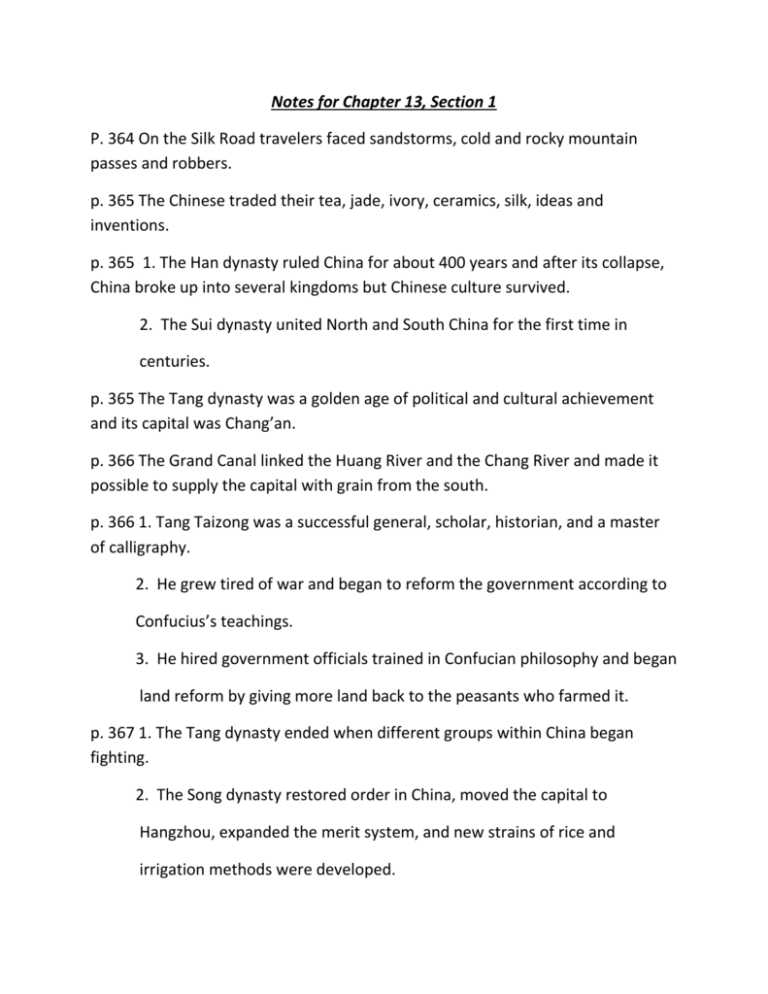
Notes for Chapter 13, Section 1 P. 364 On the Silk Road travelers faced sandstorms, cold and rocky mountain passes and robbers. p. 365 The Chinese traded their tea, jade, ivory, ceramics, silk, ideas and inventions. p. 365 1. The Han dynasty ruled China for about 400 years and after its collapse, China broke up into several kingdoms but Chinese culture survived. 2. The Sui dynasty united North and South China for the first time in centuries. p. 365 The Tang dynasty was a golden age of political and cultural achievement and its capital was Chang’an. p. 366 The Grand Canal linked the Huang River and the Chang River and made it possible to supply the capital with grain from the south. p. 366 1. Tang Taizong was a successful general, scholar, historian, and a master of calligraphy. 2. He grew tired of war and began to reform the government according to Confucius’s teachings. 3. He hired government officials trained in Confucian philosophy and began land reform by giving more land back to the peasants who farmed it. p. 367 1. The Tang dynasty ended when different groups within China began fighting. 2. The Song dynasty restored order in China, moved the capital to Hangzhou, expanded the merit system, and new strains of rice and irrigation methods were developed. p. 368 - 369 Art and trade achievements during the Song dynasty were landscape silk painting, porcelain, silk, moveable type and the compass. p. 370 1. Genghis Khan was the leader of the Mongols who were nomads from Central Asia, north of China. 2. He extended his empire including northern China but could not overthrow the Song empire to the south. 3. His grandson Kublai Khan overthrew the song empire and declared himself emperor of China. 4. He named the new dynasty Yuan. p. 370 Under Mongol rule the government positions were held by Mongols and foreigners, kept their own language and customs, but did allow the practice of many religions. p. 371 1. Marco Polo from Europe visited Mongol China under Kublai Khan and wrote about its riches, mail system, and well-maintained roads. 2. Mongol rule ended because China did not prosper under other Khans, or emperors, after Kublai Khan 3. In 1368, a Chinese peasant led a revolt that ended the Mongol rule of China.
